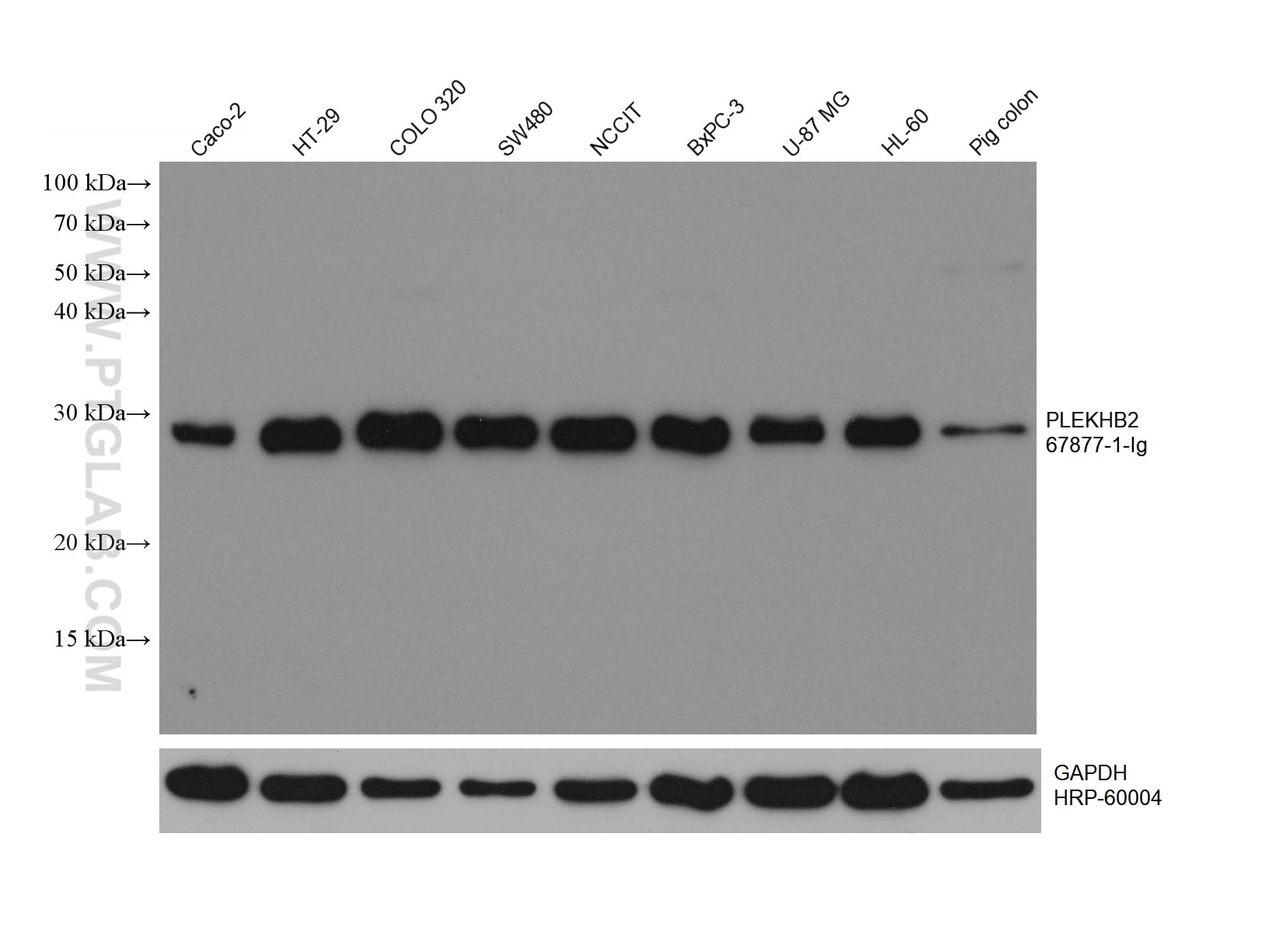Tested Applications
| Positive WB detected in | Caco-2 cells, HT-29 cells, COLO320 cells, SW480 cells, NCCIT cells, BxPC-3 cells, U-87 MG cells, HL-60 cells, Pig colon tissue |
Recommended dilution
| Application | Dilution |
|---|---|
| Western Blot (WB) | WB : 1:2000-1:10000 |
| It is recommended that this reagent should be titrated in each testing system to obtain optimal results. | |
| Sample-dependent, Check data in validation data gallery. | |
Product Information
67877-1-Ig targets PLEKHB2 in WB, ELISA applications and shows reactivity with Human, pig samples.
| Tested Reactivity | Human, pig |
| Host / Isotype | Mouse / IgG1 |
| Class | Monoclonal |
| Type | Antibody |
| Immunogen | PLEKHB2 fusion protein Ag9231 Predict reactive species |
| Full Name | pleckstrin homology domain containing, family B (evectins) member 2 |
| Calculated Molecular Weight | 222 aa, 25 kDa |
| Observed Molecular Weight | 19-25;30-34 kDa |
| GenBank Accession Number | BC013991 |
| Gene Symbol | PLEKHB2 |
| Gene ID (NCBI) | 55041 |
| RRID | AB_2918634 |
| Conjugate | Unconjugated |
| Form | Liquid |
| Purification Method | Protein G purification |
| UNIPROT ID | Q96CS7 |
| Storage Buffer | PBS with 0.02% sodium azide and 50% glycerol, pH 7.3. |
| Storage Conditions | Store at -20°C. Stable for one year after shipment. Aliquoting is unnecessary for -20oC storage. 20ul sizes contain 0.1% BSA. |
Background Information
PLEKHB2, also named as EVT2 (Evectin-2), is involved in retrograde transport of recycling endosomes. PLEKHB2 has been identified as post-Golgi proteins of unknown function that have a PH domain that typically binds polyphosphoinositides. PLEKHB2 is expressed in a broad range of tissues. PLEKHB2 has some isoforms with MW 19-26 kDa and 34 kDa. This antibody recognizes all the isoforms of PLEKHB2.
Protocols
| Product Specific Protocols | |
|---|---|
| WB protocol for PLEKHB2 antibody 67877-1-Ig | Download protocol |
| Standard Protocols | |
|---|---|
| Click here to view our Standard Protocols |



